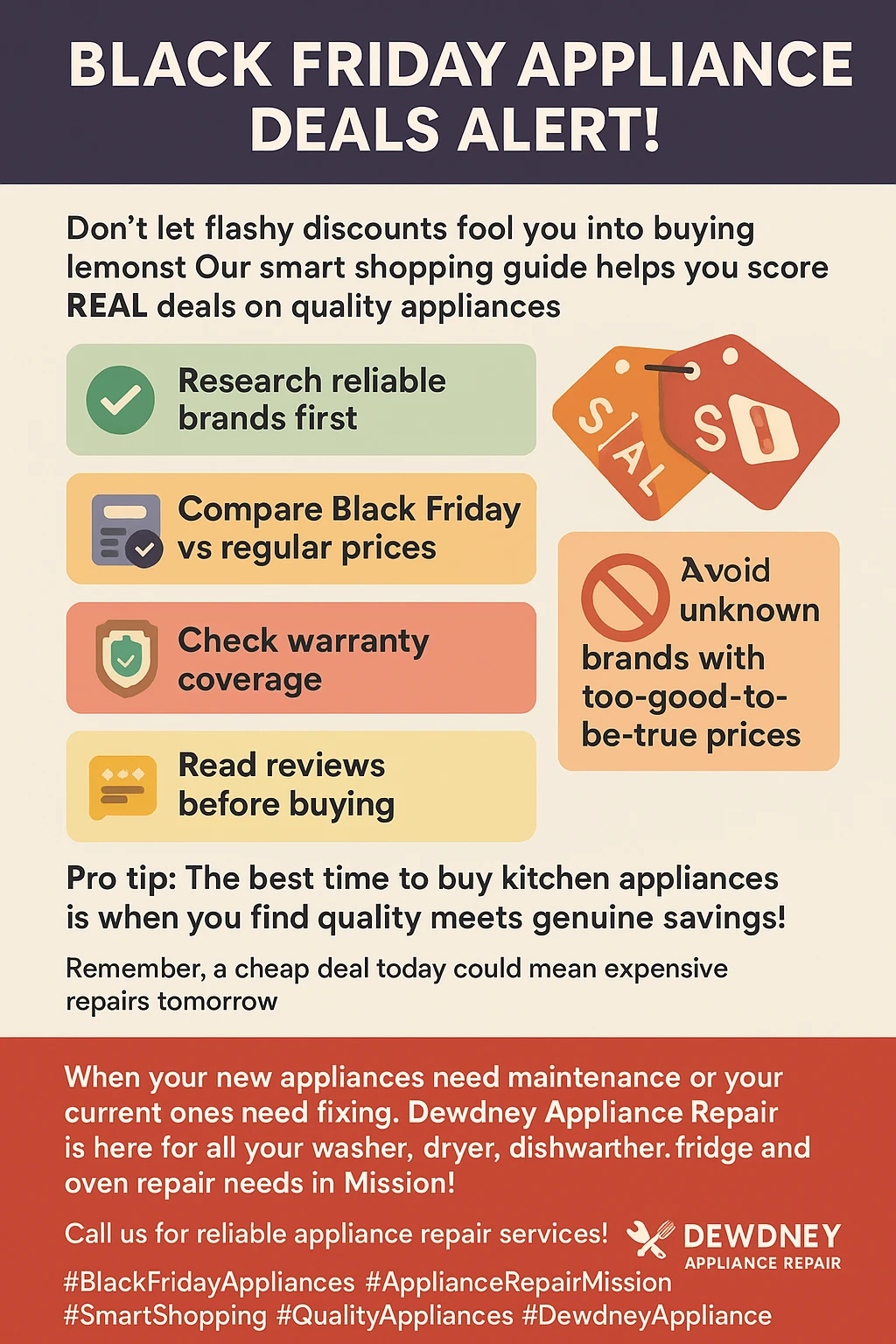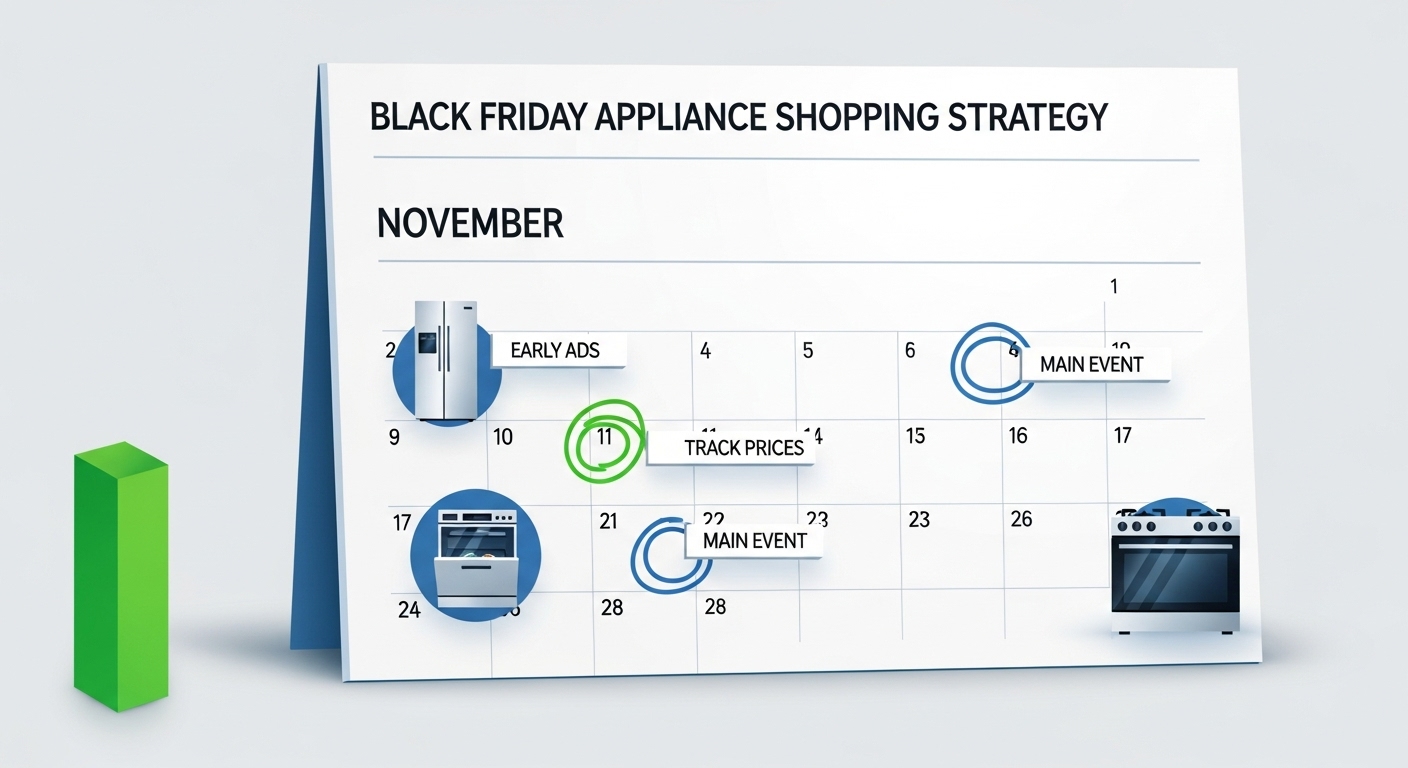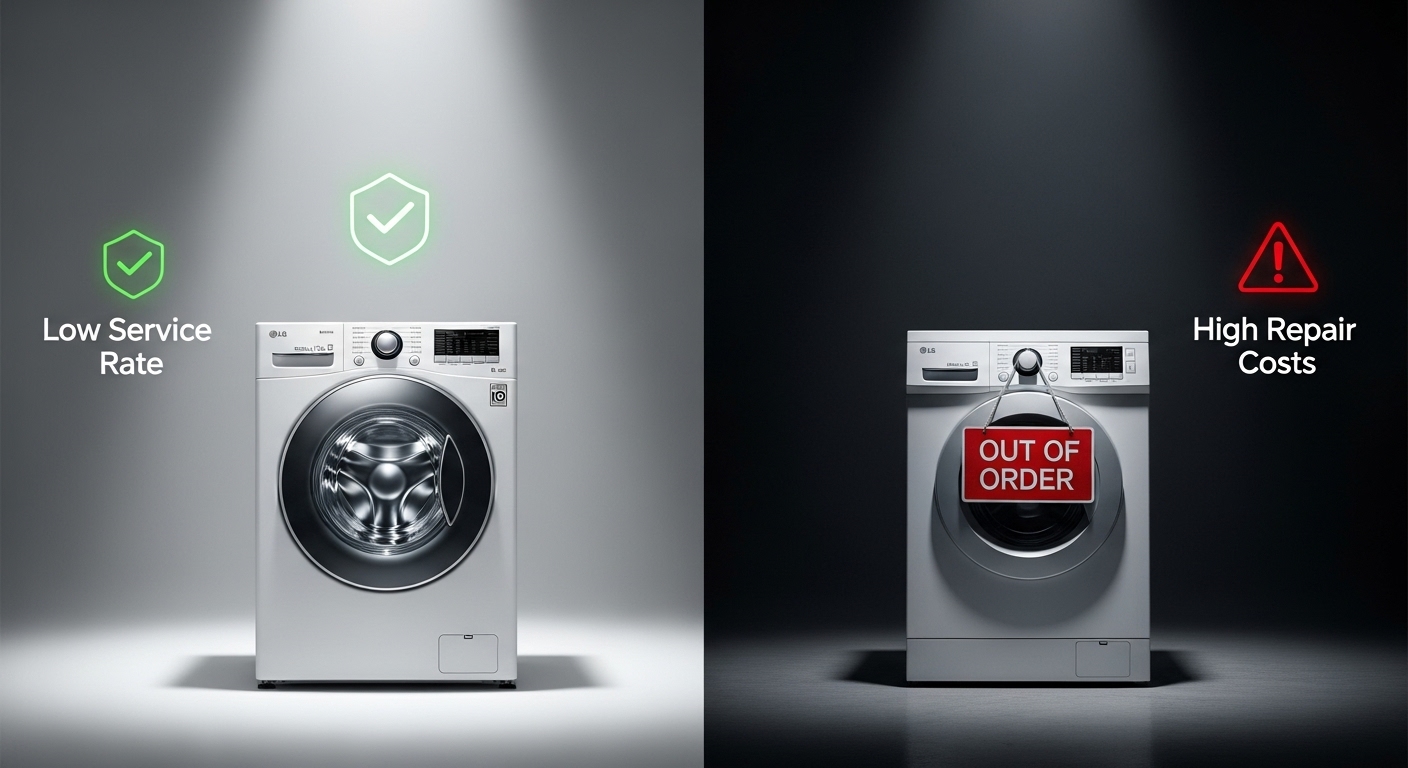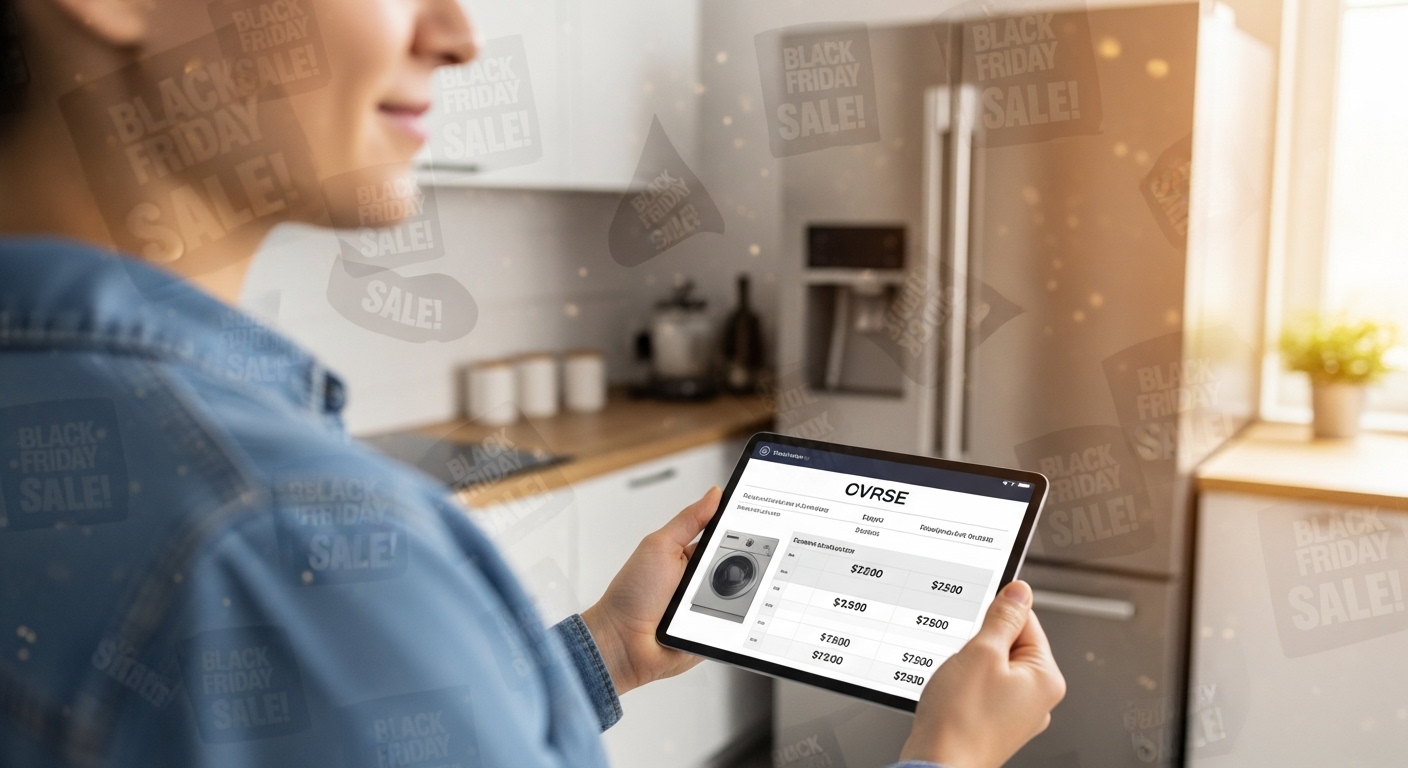Black Friday Appliance Deals: Smart Shopping Guide to Avoid Lemons and Maximize Your Investment
Ready to score major savings on that dream kitchen upgrade during Black Friday season? Discover how to navigate appliance deals like a pro and avoid costly mistakes that could leave you with unreliable lemons instead of long-lasting investments.
Picture this: you’re finally ready to ditch that ancient refrigerator that sounds like a freight train, or maybe you’re eyeing that sleek induction range you’ve been dreaming about all year. Black Friday rolls around with its tantalizing promises of massive savings, but here’s the thing – not all deals are created equal, and some of those “amazing” discounts might actually be wolves in sheep’s clothing. As someone who’s helped countless homeowners navigate the wild world of appliance shopping, I can tell you that Black Friday success isn’t just about finding the lowest price tag. [IMAGE PLACEHOLDER FOR IMAGE1]
The appliance game has changed dramatically over the past few years. We’re talking about sophisticated machines packed with smart technology, multiple cycles, and features that would make your grandmother’s washing machine look like a museum piece. But with great technology comes great responsibility – and unfortunately, greater potential for things to go sideways. The key is knowing how to separate the genuine steals from the duds that’ll have you calling repair services before your warranty expires.
What makes this whole shopping adventure even trickier is that manufacturers have gotten really clever about their Black Friday strategies. They’re not just slashing prices randomly – there’s method to their madness, and understanding that method is your ticket to appliance nirvana. From timing your purchases to decoding warranty fine print, smart Black Friday appliance shopping requires strategy, patience, and a healthy dose of skepticism about deals that seem too good to be true.
Key Outtakes:
- Black Friday offers up to 50% savings on major appliances, making it the optimal time for strategic purchases when you know which brands to target
- Focus your shopping efforts on the “big three” retailers – Home Depot, Lowe’s, and Best Buy – since they handle 80% of all appliance sales and offer the most competitive price matching
- Prioritize reliable brands like LG (5.5% service rate) and Bosch over unknown discount brands, as repair costs can quickly erase any initial savings
- Extended warranties averaging $150 become more valuable during Black Friday due to enhanced terms and the higher failure rates of modern appliances (34% of refrigerators need repairs within five years)
- Strategic negotiation works – 67% of shoppers who attempt price matching during major sales events succeed, saving a median of $123

When Black Friday Actually Happens for Appliances

Here’s something most people don’t realize about Black Friday appliance shopping – it’s not actually just one day anymore. The whole “rush to the store at 5 AM on Friday” thing? That’s so 2010. Modern Black Friday appliance deals typically kick off in early November and run through the first week of December, giving you a strategic purchasing window instead of that heart-pounding, decision-making pressure cooker situation. [IMAGE PLACEHOLDER FOR IMAGE2]
According to industry insiders, about 80% of all appliance sales in the US happen through three major retailers, and these giants have learned that extending their sales periods actually increases their profits. Smart shoppers can use this extended timeline to their advantage by tracking prices starting in early November when retailers release their advance advertisements. This approach lets you identify genuine discounts versus those sneaky inflated baseline prices that make mediocre deals look amazing.
The fall timing isn’t coincidental either – manufacturers typically introduce their new model year appliances between September and November. This means Black Friday becomes the perfect storm for clearing out previous year inventory, often at genuinely substantial discounts. However, here’s where it gets interesting: not all “previous year” models are actually outdated. Some might be identical to current models with different model numbers, while others might be missing minor features that don’t affect core performance.
January presents a secondary opportunity that many shoppers miss entirely. After the Black Friday rush dies down, retailers often continue clearing inventory with New Year sales that can rival Black Friday pricing, especially on items that didn’t sell as expected during the holiday rush. The bonus? Better customer service availability and less pressure to make quick decisions.
One strategy that’s particularly effective during the Black Friday period is mid-week shopping. While everyone’s focused on Friday through Monday, Tuesday and Wednesday purchases during this period often provide better customer service experiences, easier returns processing, and surprisingly, access to floor models at additional discounts that weekend shoppers might have missed.
Brand Reliability: Your Insurance Against Black Friday Regrets

Now that we’ve established when to shop, let’s talk about the make-or-break decision: which brands deserve your hard-earned money. This is where things get really interesting, because the appliance reliability landscape has some surprising winners and losers that might challenge your assumptions. [IMAGE PLACEHOLDER FOR IMAGE3]
Recent reliability data reveals that Gaggenau leads the pack with an impressive 3.7% service rate, followed by other premium brands, but here’s the kicker – you don’t need to spend luxury money to get reliability. LG maintains a solid 5.5% service rate across their appliance lines and frequently appears in Black Friday promotions, making them a sweet spot for value-conscious shoppers.
Samsung presents an interesting case study in brand-specific reliability. Their front-load laundry achieves a respectable 4.4% service rate, but their overall service network has historically been problematic. This matters more during Black Friday because increased purchase volumes can strain customer service systems. When you’re buying during peak periods, brands with established service networks become crucial for post-purchase support.
Bosch deserves special attention, especially for their dishwashers. They’ve built a reputation for quiet operation and reliability, plus they consistently appear in Black Friday promotions with meaningful discounts. Their consumer trust rankings reflect this reliability, with scores that align with actual performance metrics rather than just marketing hype.
Here’s something most shoppers don’t consider: service network accessibility during high-volume periods like Black Friday. LG launched a comprehensive national service network in 2023, which means when thousands of people buy their appliances during Black Friday, there’s infrastructure to support them. Contrast this with brands that offer attractive pricing but lack robust service infrastructure – you might save money upfront but face frustration later.
The reliability conversation gets more complex when we look at specific appliance categories. French door refrigerators, for instance, have different reliability profiles than top-freezer models, even from the same manufacturer. Similarly, front-load washers require different maintenance considerations than top-loaders, regardless of brand. Smart Black Friday shopping means matching your lifestyle and maintenance preferences with reliability data, not just chasing the biggest discount percentage.
Mastering the Big Three Retailer Game

Since Home Depot, Lowe’s, and Best Buy control 80% of the appliance market, understanding their individual Black Friday strategies becomes essential for maximizing your savings potential. Each retailer has developed distinct approaches that smart shoppers can leverage.
Best Buy has pioneered some interesting digital tools that provide competitive advantages beyond simple price comparison. Their online platform allows you to filter products by discount percentage, making it easier to identify genuine deals versus token markdowns. They also maintain detailed specification databases that help you compare similar models across brands, which becomes invaluable when evaluating Black Friday options that might look similar but perform differently.
Home Depot’s approach focuses heavily on package deals and installation incentives. Their mobile app includes a 3D visualization feature that helps you see how appliances will look in your space – functionality that becomes particularly useful when shopping online to avoid crowds. They also tend to offer more aggressive pricing on contractor-grade appliances, which can provide better longevity for busy families.
Lowe’s has carved out a niche with their “buy more, save more” strategy during Black Friday. Their platform defaults to showing only in-stock items, which saves time and prevents the disappointment of falling in love with something unavailable. They also frequently bundle extended warranties at reduced rates during Black Friday, which can provide excellent value given the failure rates of modern appliances.
The negotiation game changes during Black Friday, but it’s still absolutely worth playing. Twenty-one percent of major appliance shoppers attempt price negotiations, and an impressive 67% succeed, saving a median of $123. The key tactics that work best include purchasing multiple items simultaneously, mentioning competitor pricing, and asking about senior or membership discounts. Here’s something most people don’t try: negotiating for floor models, which can net additional savings even during already-discounted Black Friday periods.

